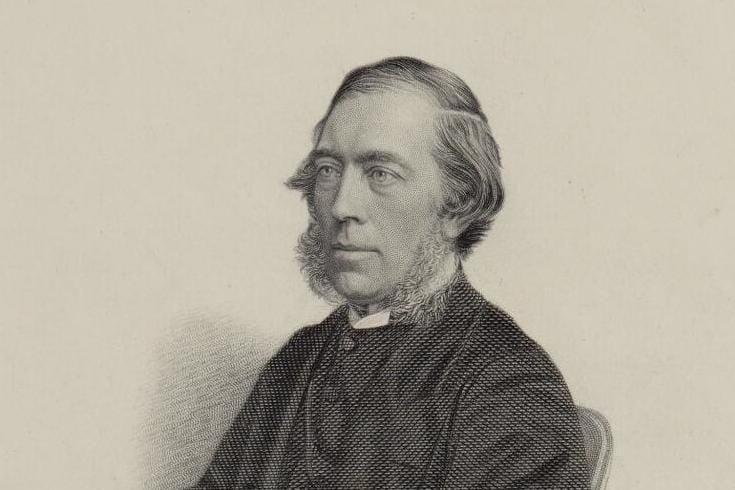The Parousia
Russell's book helps clear up the confusion surrounding Bible prophecy.

Key words
- Pastor: a religious leader in certain Protestant Churches
Van Gogh was a pastor before he was a painter
- Divinity: the study of religion
She has a Doctorate in Divinity from York University.
- Central theme: the main subject of a talk, book, film, etc.
The central theme of the conference was the changing role of women in modern society.
- Anticipate: to imagine or expect that something will happen
We had one or two difficulties along the way that we didn't anticipate.
- Creed: a formal statement or system of religious beliefs
The Apostles' Creed dates from the 5th century.
Read the article to find the answers
- What did the University of Aberdeen award Russell with after he published his book?
- What is the central theme of Russell's book?
- When was the Nicene Creed written?
- What is the Olivet Discourse?
James Stuart Russell
James Stuart Russell was a pastor and author best known for his work "The Parousia" published in 1878. Today, a reprint of the book is available with the title, "The Parousia: The New Testament Doctrine of Our Lord's Second Coming."
Russell began his education early, entering King's College, Aberdeen, at the age of twelve. At the age of eighteen, he completed his M.A. degree. When The Parousia was published, the University of Aberdeen recognized the importance of the book by awarding Russell a Diploma in Divinity.
The Parousia
The central theme of Russell's work is the Parousia, or the Second Coming, which is also the central theme of New Testament prophecy. Jesus said it was imminent, and it was eagerly anticipated by the first generation of Christians.
The Nicene Creed
The Nicene Creed was written under the direction of Emperor Constantine in 325 AD and it remains at the heart of almost all Christian denominations, but Christians influenced by Russell's book, believe that the Bible takes precedence over creeds, claiming that the line in the Nicene Creed that reads:
And He shall come again ...
contradicts the words of Jesus, who said:
This generation shall not pass away, until all these things be fulfilled ... the time is at hand ... these things will be done shortly ... I am coming back quickly.
They conclude that New Testament prophecy was fulfilled in 70 AD. They also believe that the translation of the original Greek word 'aeon' to 'world' has led many people to believe in various worldwide doomsday scenarios. If 'aeon' had been translated as 'age', Christians would have believed that Jesus was telling His disciples about the end of Jewish temple worship in Jerusalem.
The Olivet Discourse
The Olivet Discourse is a major teaching of Jesus Christ in which He spoke about the destruction of the temple, His second coming and the final judgement. It is found in Matthew 24-25; Mark 13; and Luke 21:5-36. Here is an extract from the Gospel of Mark:
As the Apostles were leaving the temple, one of His followers mentioned how impressive the buildings were. Jesus replied:
See these great buildings? They will all be torn down.
The Apostles asked Him:
When will these things happen? What will be the sign of your coming and of the end of the age?
Jesus replied by giving them a list of events that would take place before He would return and end the age in which they were living.
Discussion questions
- Do you have any questions about any of the vocabulary or grammar in this article?
- Have you ever read the Olivet Discourse?
- What do you know about the Second Coming?
- What is the largest Christian denomination in your country?

Book a Lesson
Improve your English language communication skills by practicing with a qualified and experienced native speaker.





